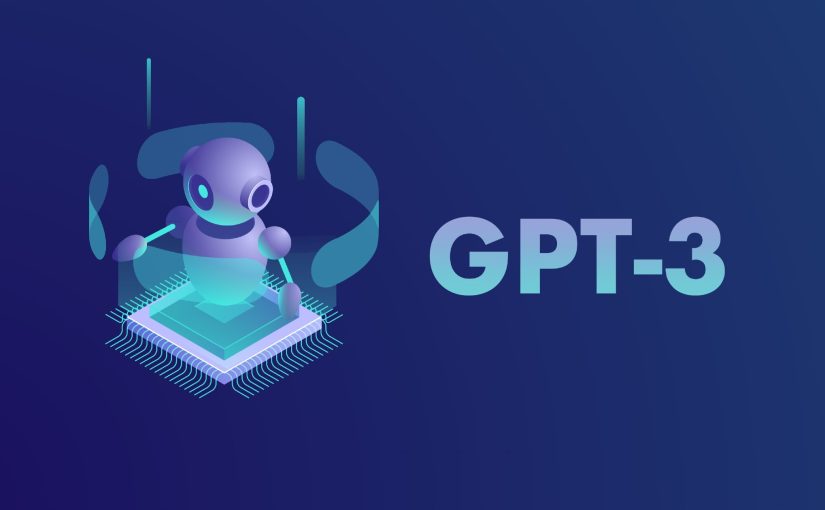I spent some time working for an AI chatbot company for a few years. Another company, OpenAI, recently launched a demo of it’s GPT-3 technology. I was quite impressed and interested since it was in the same space I previously worked in.
So, I decided to use GPT-3 to write a blog post about artificial intelligence to see how it would do.
Everything below this point is generated by the AI models and not edited by me in anyway.
How artificial intelligence is changing the way we work
Artificial intelligence (AI) is a hot topic right now. Many people are talking about it and wondering how it will change their lives. But what is AI, and what can it do for you?
Simply put, AI is a way to make a computer do things that ordinarily require human intelligence, such as understanding natural language and recognizing objects. This involves teaching the computer to learn from data, and then using that learning to make decisions or predictions.
One of the areas where AI is already having a big impact is the workplace. For example, AI can be used to automate tasks such as sifting through data to find specific information, or scheduling meetings. It can also be used to create chatbots, which are computer programs that can mimic human conversation. This can be useful for things like customer service, where the chatbot can answer common questions and direct people to the right person if they need more help.
AI can also be used to improve decision-making. For example, many companies are using AI to predict customer behavior, so they can make better decisions about what products to offer and how to market them. AI can also be used to improve productivity by automating tasks that would otherwise take up a lot of time.
Overall, AI can help to make the workplace more efficient and productive. It can automate tasks, make better decisions, and improve communication. So if you’re looking to improve your productivity, or you’re looking for a way to automate tedious tasks, AI may be the answer.
How artificial intelligence is changing the way we learn
In today’s technologically driven society, artificial intelligence (AI) is becoming more and more prevalent in our lives. AI is used in a variety of ways, from helping us with our day-to-day tasks to making life-changing medical diagnoses. AI is also changing the way we learn.
One of the most impressive ways AI is being used to help us learn is through the use of virtual assistants. A virtual assistant is a computer program that can perform tasks for you, such as scheduling appointments or making online purchases. Virtual assistants are powered by AI and can learn about your preferences and needs over time. This allows them to provide a more personalized experience for you and help you learn more efficiently.
Virtual assistants are not the only way AI is being used to help us learn. There are a number of AI-powered tools that can help us learn more effectively. For example, there are tools that can help us learn a new language more quickly or improve our memory. These tools use AI to track our progress and provide feedback on how we can improve.
AI is also being used to create educational content. There are a number of AI-powered platforms that allow you to create and share educational content with others. These platforms use AI to analyze and understand the content you create. This allows them to provide feedback on how well your content is understood and improve it over time.
AI is changing the way we learn, and this is just the beginning. As AI continues to evolve, it is sure to play an even bigger role in our lives and in the way we learn.
How artificial intelligence is changing the way we play
games
Games have always been a form of entertainment that allows us to escape the real world and experience different fantasies and adventures. However, with the advent of artificial intelligence (AI), games are starting to become more realistic and lifelike, offering players more immersive and engaging experiences.
One of the ways in which AI is changing the gaming world is by making it possible for games to learn and adapt to the player’s individual preferences. This means that the game can automatically adjust the difficulty level, the in-game environment and the characters’ behaviour according to what the player likes and dislikes. For example, if the player prefers fast-paced, action-packed games, the AI can adjust the game to be more challenging and exciting. Alternatively, if the player prefers games with a slower pace, the AI can adjust the game to be more relaxing and less challenging.
AI is also making it possible for games to be more social. For example, games can now include features that allow players to interact with each other in real-time, regardless of where they are in the world. This is done by using AI to interpret the player’s voice and facial expressions in order to create realistic and believable dialogue. This not only makes the gaming experience more social and immersive, but it also allows players to communicate with each other in a more natural way.
AI is also being used to create more realistic and lifelike characters. These characters can be made to look, sound and behave in a way that is realistic and believable, which helps to create an immersive gaming experience. For example, the character’s movements can be realistic, and their facial expressions can be adapted to match the player’s emotional state. This not only allows players to connect with the character on a deeper level, but it also helps to create a more believable and enjoyable gaming experience.
Overall, AI is changing the way we play games by making games more realistic, social and immersive. This means that players are able to experience different fantasies and adventures in a more realistic and engaging way.
How artificial intelligence is changing the way we communicate
Artificial intelligence is changing the way we communicate. The first change is the way we search for information. We are no longer reliant on search engines to find the information we need. We can now ask our digital assistant for help. For example, if I need to book a flight, I can ask my assistant to help me find the best deal.
The second change is the way we communicate with each other. We can now communicate with each other using digital assistants. For example, if I need to ask my friend a question, I can ask my assistant to ask my friend for me. This is a great way to avoid spam and keep our conversations private.
The third change is the way we communicate with machines. We can now communicate with machines using digital assistants. For example, if I need to ask my assistant to turn on the lights, I can ask my assistant to do it for me. This is a great way to avoid having to learn how to use different devices.
The fourth change is the way we communicate with our environment. We can now communicate with our environment using digital assistants. For example, if I need to ask my assistant for the temperature, I can ask my assistant to tell me. This is a great way to avoid having to learn how to use different devices.
How artificial intelligence is changing the way we think
As artificial intelligence (AI) continues to evolve, so does its impact on the way we think. AI has the ability to change the course of how we process information and make decisions.
There are many different ways that AI can impact our cognitive abilities. For example, AI can help us learn and remember information more effectively. In addition, AI can help us to be more creative and innovative in our thinking. AI can also help us to better understand and analyze data.
AI can also help us to make better decisions. AI can help us to assess risks and rewards more accurately. AI can also help us to identify patterns and trends that we would not have been able to see otherwise.
Overall, AI has the potential to significantly improve our cognitive abilities. With the help of AI, we can become faster, smarter and more efficient thinkers.

